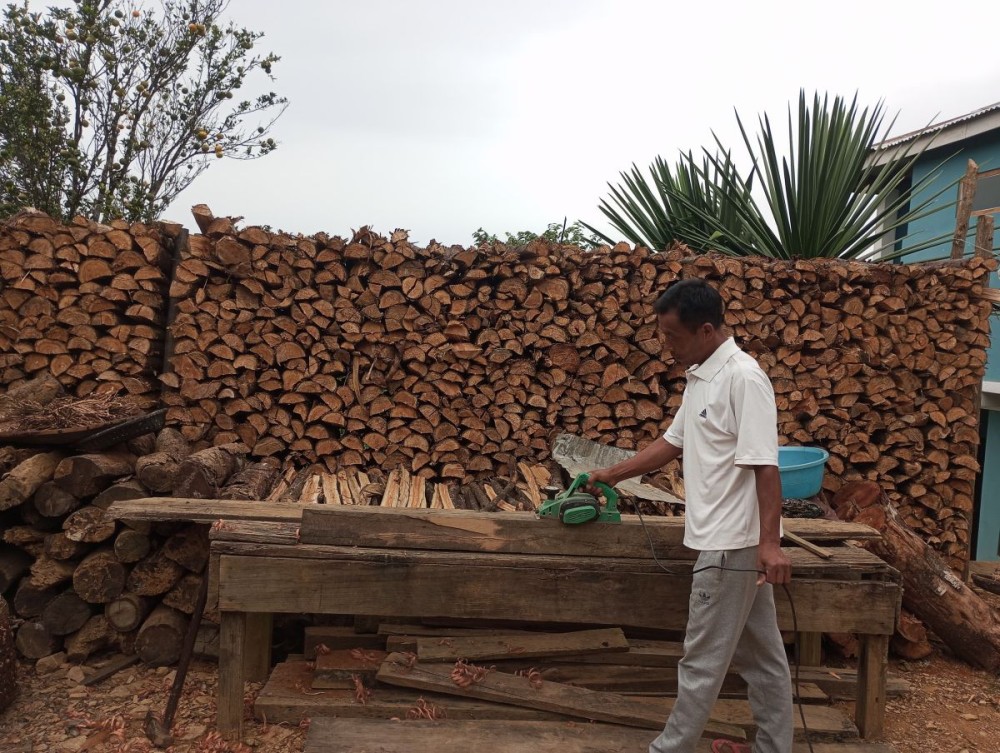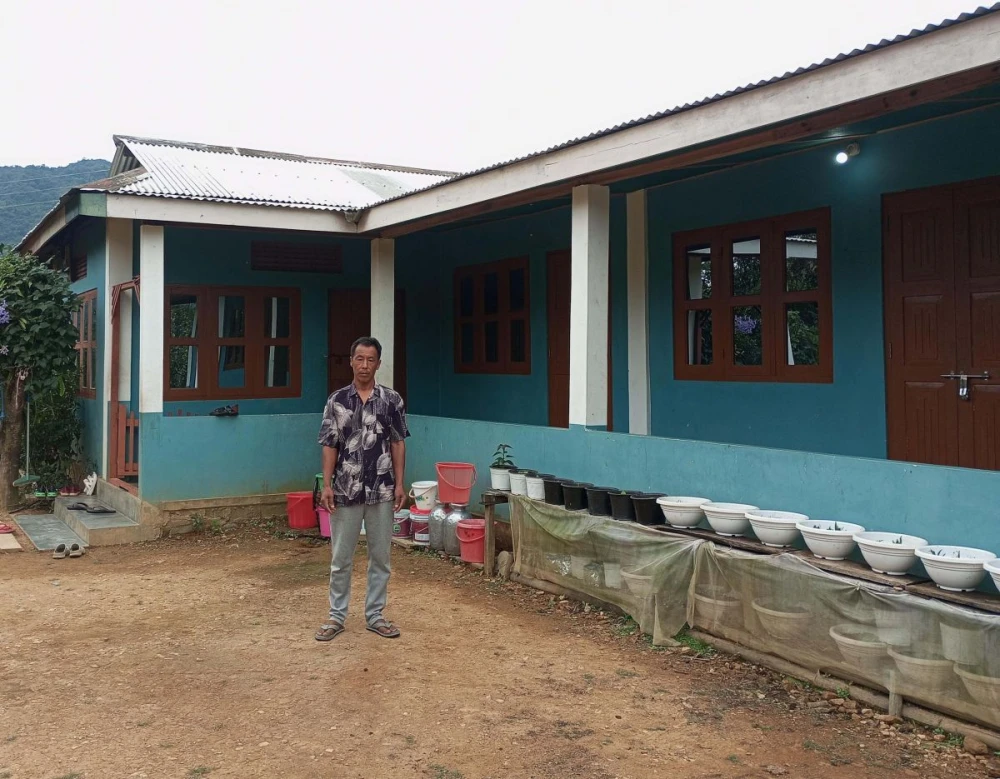Savezo Venuh, a self-taught construction worker from Phek village has been in the construction business for over 30 years.

• Why a self-made builder is steering youth toward construction
• Advocates for subsidised equipment, reveals sector’s struggles
• Calls for government support with equipment, creating awareness
Chizokho Vero
Kohima | November 6
A self-taught construction worker from Nagaland’s Phek village has been encouraging school drop-outs and unemployed youth in the locality to take up jobs in the construction industry.
Savezo Venuh, who has been in the construction business for over 30 years, maintained that the demand for construction workers will continue to grow due to rapid infrastructure development and continuous construction of housing units across the country.
“Nowadays, the requirement of physical workforce for paddy cultivation is diminishing even in our area with the adoption of technology and farm mechanization,” Venuh said.
He asserted that the construction industry offers ample job advantages.
52-year-old, Venuh, who entered the construction industry as a self-employment venture in the late 1980s to sustain his livelihood, began his career with a humble furniture unit, making wooden sofa sets, and window and door frames.
Encouraged by high demand from customers, he dedicated himself to becoming a full-time construction worker. The daily wage at that time was Rs 150.
“Today, I am getting a daily wage of Rs 900,” Venuh said. “I have not taken any formal training. I chose this profession based on passion.”
Venuh, together with six co-workers, has diversified his RCC construction business. His team, which includes Vekutu Venuh, Khove Venuh, Zapoto Vero, Munuve Hoshi, Thupukhozo Venuh, and Vebizo Venuh, works from 8:00 AM until 5:00 PM.

“Apart from our normal construction of house dwelling units, we also engage in renovation works of the government offices/quarters and schools at Phek village and District HQ Phek,” Venuh stated.
He added that their portfolio includes constructing multiple retaining walls along the Phek-Pfutsero two-lane road and the Chizami-Lanye highway.
After completing his education up to Class VIII at the Government Upgraded Middle School (now High School) in Phek village, Venuh left school early. He is married to Khosetalii Venuh, and the couple has been blessed with two sons and two daughters.
His two older sons have since joined the family business, assisting him with construction work after concluding their formal studies. Their elder daughter is currently pursuing her class 12 at Honili Memorial Higher Secondary School in Dimapur, and the youngest daughter is in Class VIII at Baptist Mission School in Phek village.
Venuh expressed satisfaction with his work, stating, “I am satisfied with my job.” He also gave thanks to God for the ability to balance his career and family life. A testament to his skill and dedication, he built his own house through self-labour, significantly reducing construction costs.
“The biggest challenge is the high cost of tools and equipment,” Venuh said, noting that many workers struggle to afford them. He suggested that the government could extend necessary tools and equipment at subsidised rate to lessen the burden of the construction workers.
Venuh is now registered with the Nagaland Labour Department and has received a one-time assistance payment of Rs 2,000. He mentioned that there are approximately 60 construction workers from Phek village.
To cope with fluctuations in demand, the workers diversify their skills. “Sometime we do not get labour market demand. On such occasions, most of us do furniture works,” he explained.
When asked if he was aware of the e-Shram scheme, Venuh replied, “No, no.. I am not aware of it.”
The e-Shram scheme is a government initiative to create a comprehensive database of unorganized workers in India, which aims to provide them with social security and welfare benefits.
It involves registering unorganized workers, including construction workers, gig and platform workers, and migrant laborers, to provide them with a unique ID card for easier access to various central and state government schemes.
Upon learning about the scheme's purpose, Venuh said, “I will be happy to avail it.”
Venuh hopes the concerned department will create awareness programme about various welfare schemes so construction workers can learn how to benefit from them.
He also advocates for government-sponsored exposure trips and training programme to provide necessary trainings to acquaint them with the latest technology in construction industry.
Despite these needs, Venuh himself has not yet registered for any major health insurance scheme, such as Ayushman Bharat (AB-PMJAY) or the Chief Minister's Health Insurance Scheme (CMHIS).
This is the second report of the four-part series highlighting the experiences and challenges faced by the construction industry in Nagaland as part of the KPC-NBOCWWB Media Fellowship 2025.






